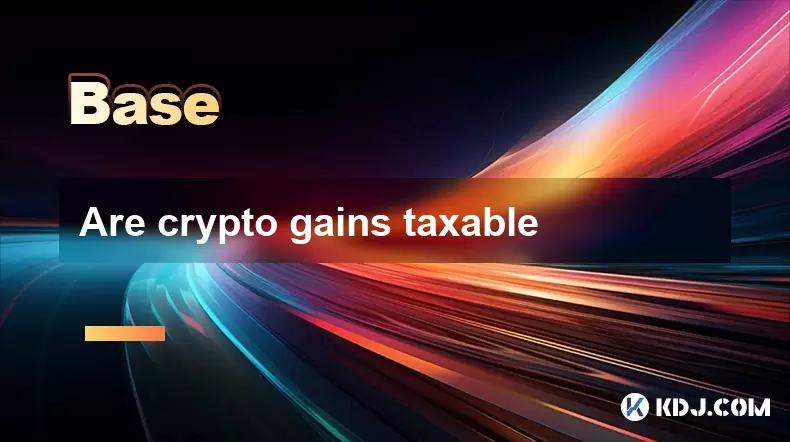-
 Bitcoin
Bitcoin $118100
0.44% -
 Ethereum
Ethereum $3765
5.84% -
 XRP
XRP $3.498
3.12% -
 Tether USDt
Tether USDt $1.000
0.00% -
 BNB
BNB $753.2
3.41% -
 Solana
Solana $181.7
3.58% -
 USDC
USDC $0.9999
0.01% -
 Dogecoin
Dogecoin $0.2704
12.75% -
 Cardano
Cardano $0.8684
5.85% -
 TRON
TRON $0.3151
-0.86% -
 Hyperliquid
Hyperliquid $46.06
4.51% -
 Stellar
Stellar $0.4695
2.48% -
 Sui
Sui $3.910
3.18% -
 Chainlink
Chainlink $19.36
6.65% -
 Hedera
Hedera $0.2750
3.99% -
 Bitcoin Cash
Bitcoin Cash $544.6
6.31% -
 Avalanche
Avalanche $25.12
3.69% -
 Shiba Inu
Shiba Inu $0.00001559
5.40% -
 Litecoin
Litecoin $116.8
5.10% -
 UNUS SED LEO
UNUS SED LEO $8.991
0.05% -
 Toncoin
Toncoin $3.283
2.79% -
 Polkadot
Polkadot $4.509
3.97% -
 Uniswap
Uniswap $10.67
6.58% -
 Ethena USDe
Ethena USDe $1.001
-0.01% -
 Monero
Monero $323.2
0.48% -
 Pepe
Pepe $0.00001410
6.37% -
 Bitget Token
Bitget Token $4.964
1.93% -
 Dai
Dai $0.9998
-0.01% -
 Aave
Aave $326.2
3.85% -
 Bittensor
Bittensor $421.8
2.46%
Are crypto gains taxable
Crypto gains are taxable in most countries, with events like selling, trading, or spending crypto triggering capital gains or income tax.
Jul 15, 2025 at 03:15 am

Understanding the Tax Implications of Cryptocurrency Gains
Cryptocurrency has gained widespread adoption, but many investors overlook the tax obligations associated with digital asset transactions. Whether you're trading, investing, or using crypto for everyday purchases, understanding whether and how your gains are taxed is crucial. The short answer is yes—crypto gains are taxable in most jurisdictions, including the United States, the United Kingdom, Canada, and Australia.
Taxable events include selling crypto for fiat currency, exchanging one cryptocurrency for another, and using crypto to purchase goods or services.
Each country has its own set of rules, so it's essential to understand the specific regulations that apply to your location.
What Constitutes a Taxable Event?
Not every interaction with cryptocurrency triggers a tax liability. However, several common actions are considered taxable:
- Selling cryptocurrency for fiat currency (e.g., USD, EUR) – This is the most straightforward taxable event. If the sale price is higher than your cost basis, you realize a capital gain.
- Trading one cryptocurrency for another (e.g., BTC to ETH) – Even though no fiat is involved, this exchange is treated as a disposal and may trigger capital gains tax.
- Using crypto to buy goods or services – Spending crypto is treated similarly to selling it. You must calculate any gain or loss based on the value at the time of the transaction.
- Mining or staking rewards – These are generally considered income and taxed at their fair market value when received.
If you simply hold crypto without engaging in any of these activities, there’s typically no immediate tax consequence.
How Are Crypto Gains Classified for Tax Purposes?
Governments classify cryptocurrency differently, but in most cases, it's treated as property rather than currency. This classification significantly impacts how gains are calculated and taxed.
In the U.S., the IRS treats virtual currencies as property, meaning capital gains and losses are calculated using cost basis methods like FIFO (First In, First Out) or specific identification.
Capital gains can be either short-term or long-term:
- Short-term gains – Apply if you held the asset for one year or less. These are taxed at your ordinary income tax rate.
- Long-term gains – Apply if you held the asset for more than one year. These are taxed at lower rates, depending on your income level.
Other countries follow similar principles, though the holding period and tax brackets may vary.
Reporting Crypto Transactions to Tax Authorities
Accurate record-keeping is vital for reporting crypto transactions correctly. Tax authorities require detailed documentation to verify gains and losses.
You should track the following for each transaction:
- Date of acquisition
- Purchase price in local currency
- Date of disposal
- Sale or exchange price in local currency
- Description of the asset (e.g., Bitcoin, Ethereum)
Some platforms provide tax reports or integrate with third-party tools like CoinTracking, Koinly, or Crypto.com Tax to help streamline the process.
Failure to report crypto gains can lead to penalties, audits, or even criminal charges in extreme cases.
Tax Treatment Across Different Countries
While many countries agree that crypto gains are taxable, the specifics differ significantly.
In the United States, the IRS requires taxpayers to answer a question about virtual currency on Form 1040. Detailed reporting is required for all taxable events, and exchanges are increasingly sharing user data with the IRS.
In the United Kingdom, HMRC treats crypto as an asset subject to Capital Gains Tax. There is an annual exempt amount, and individuals must calculate gains using specific pooling methods.
In Canada, the Canada Revenue Agency (CRA) considers crypto as a commodity. Dispositions trigger capital gains or business income depending on the taxpayer's activity level.
In Australia, the Australian Taxation Office (ATO) also treats crypto as property. Each disposal must be reported, and records must be kept for at least five years.
These differences highlight the importance of consulting a local tax professional familiar with cryptocurrency regulations.
Frequently Asked Questions (FAQs)
Q: Do I owe taxes if I only bought crypto but didn’t sell it?
A: No, purchasing or holding crypto alone does not trigger a taxable event. Taxes apply when you dispose of the asset through sale, trade, or use.
Q: What happens if I lose money on my crypto investments?
A: Losses can often be used to offset capital gains. Some jurisdictions allow you to carry forward losses to reduce future tax liabilities.
Q: How do I calculate the cost basis for crypto acquired through multiple purchases?
A: Methods such as FIFO, LIFO (Last In, First Out), or specific identification may be used, depending on your jurisdiction. Choose a method and apply it consistently.
Q: Are NFT transactions also taxable?
A: Yes, buying, selling, or trading NFTs can trigger capital gains or income tax depending on the nature of the transaction and how the NFT was obtained.
Disclaimer:info@kdj.com
The information provided is not trading advice. kdj.com does not assume any responsibility for any investments made based on the information provided in this article. Cryptocurrencies are highly volatile and it is highly recommended that you invest with caution after thorough research!
If you believe that the content used on this website infringes your copyright, please contact us immediately (info@kdj.com) and we will delete it promptly.
- Crypto & Institutions in July 2025: What's the Hype?
- 2025-07-21 04:30:12
- Pepeto, DOGE, SHIB Prices: What's Hot and What's Not in the Meme Coin Mania
- 2025-07-21 04:30:12
- Bitcoin Bulls Eye $125K Breakout: Is the Digital Gold Rush Back On?
- 2025-07-21 05:10:12
- Decrypting Crypto: Bitcoin's Real-World Utility and the Future of Finance
- 2025-07-21 05:15:12
- Tezos Price Surge: XTZ Prediction & What's Behind the Massive Net Inflows
- 2025-07-21 05:20:12
- Uniswap (UNI) Price Prediction: Bullish Breakout and Market Cap Momentum
- 2025-07-21 05:25:12
Related knowledge

What is the difference between a sidechain and a Layer 2?
Jul 20,2025 at 11:35pm
Understanding the Concept of SidechainsA sidechain is a separate blockchain that runs parallel to the main blockchain, typically the mainnet of a cryp...

What is the Inter-Blockchain Communication Protocol (IBC)?
Jul 19,2025 at 10:43am
Understanding the Inter-Blockchain Communication Protocol (IBC)The Inter-Blockchain Communication Protocol (IBC) is a cross-chain communication protoc...

How does sharding improve scalability?
Jul 20,2025 at 01:21am
Understanding Sharding in BlockchainSharding is a database partitioning technique that is increasingly being adopted in blockchain technology to enhan...

What is the "crypto trilemma" of scalability, security, and decentralization?
Jul 19,2025 at 06:28pm
Understanding the Concept of the Crypto TrilemmaThe crypto trilemma refers to the challenge of simultaneously achieving scalability, security, and dec...

What is a cliff and vesting schedule in tokenomics?
Jul 20,2025 at 10:28am
What Does a Cliff Mean in Tokenomics?In tokenomics, a cliff refers to a specific period during which token holders are not allowed to access or transf...

Can I create my own cryptocurrency?
Jul 20,2025 at 11:49pm
Understanding the Basics of Creating a CryptocurrencyYes, you can create your own cryptocurrency, but it involves a combination of technical knowledge...

What is the difference between a sidechain and a Layer 2?
Jul 20,2025 at 11:35pm
Understanding the Concept of SidechainsA sidechain is a separate blockchain that runs parallel to the main blockchain, typically the mainnet of a cryp...

What is the Inter-Blockchain Communication Protocol (IBC)?
Jul 19,2025 at 10:43am
Understanding the Inter-Blockchain Communication Protocol (IBC)The Inter-Blockchain Communication Protocol (IBC) is a cross-chain communication protoc...

How does sharding improve scalability?
Jul 20,2025 at 01:21am
Understanding Sharding in BlockchainSharding is a database partitioning technique that is increasingly being adopted in blockchain technology to enhan...

What is the "crypto trilemma" of scalability, security, and decentralization?
Jul 19,2025 at 06:28pm
Understanding the Concept of the Crypto TrilemmaThe crypto trilemma refers to the challenge of simultaneously achieving scalability, security, and dec...

What is a cliff and vesting schedule in tokenomics?
Jul 20,2025 at 10:28am
What Does a Cliff Mean in Tokenomics?In tokenomics, a cliff refers to a specific period during which token holders are not allowed to access or transf...

Can I create my own cryptocurrency?
Jul 20,2025 at 11:49pm
Understanding the Basics of Creating a CryptocurrencyYes, you can create your own cryptocurrency, but it involves a combination of technical knowledge...
See all articles

























































































